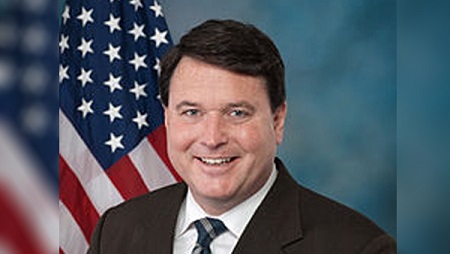by WorldTribune Staff, March 5, 2021
The so-called “For the People Act” passed by House Democrats on Wednesday is unconstitutional, the attorneys general for 20 states said in a letter to House and Senate leaders.

The 20 attorneys general, led by Indiana Attorney General Todd Rokita, said in the letter that the legislation, H.R. 1, “betrays several Constitutional deficiencies and alarming mandates that, if passed, would federalize state elections and impose burdensome costs and regulations on state and local officials.”
The state AGs cited the Elections Clause of Article I of the Constitution and the Electors Clause of Article II, which gives states the primary role in conducting federal elections for House and Senate, and an even bigger role in presidential elections.
The letter said: “The Act would invert that constitutional structure, commandeer state resources, confuse and muddle elections procedures, and erode faith in our elections and systems of governance.”
The state AGs also highlighted the “severe constitutional hurdles” the measure faces due to its “regulation of congressional elections, including by mandating mail-in voting, requiring states to accept late ballots, overriding state voter identification laws, and mandating that states conduct redistricting through unelected commissions.”
The attorneys general identified the measure’s limitations on voter ID laws as, perhaps, the most “egregious” portion of the act, noting that a majority of states have some form of a voter ID law, writing:
Yet the Act would dismantle meaningful voter ID laws by allowing a statement, as a substitute for prior-issued, document-backed identification, to “attest[] to the individual’s identity and . . . that the individual is eligible to vote in the election.” This does little to ensure that voters are who they say they are. Worse, it vitiates the capacity of voter ID requirements to protect against improper interference with voting rights. Before the advent of voter ID laws, partisans stationed at polling places could challenge voters based only on suspicions about identity, a process that prompted concerns about voter intimidation. Robust voter ID laws, however, require all voters to present photo identification, i.e., objective, on-the-spot confirmation of the right to vote that immediately refutes bad-faith challenges based on vaguely articulated suspicions. Fair election laws treat all voters equally. By that standard, the Act is not a fair election law.
Along with Rokita, the letter was signed by the AGs from Alabama, Arkansas, Florida, Georgia, Idaho, Kentucky, Louisiana, Mississippi, Missouri, Montana, Nebraska, Ohio, Oklahoma, South Carolina, South Dakota, Tennessee, Texas, Utah, and West Virginia.
Intelligence Brief __________ Replace The Media
